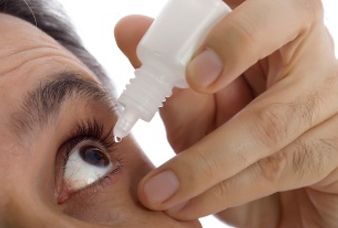How to Care for Your Dry Eyes and Dry Mouth
Sjogren syndrome affects up to 4 million Americans. There is no cure, but the symptoms-mainly dry eyes and dry mouth-can be relieved.
How to Care for Your Dry Eyes and Dry Mouth

Sjogren syndrome affects up to 4 million Americans. There is no cure, but the symptoms-mainly dry eyes and dry mouth-can be relieved.
Once the diagnosis is made, your physician will recommend treatment to help relieve dryness; artificial tears help improve dry eyes, and saliva stimulants and mouth lubricants help with dry mouth. Then it’s up to you to take the best possible care of your eyes and mouth. Here are 10 ways to go about it:
Eye care
1. Experiment to find the right artificial tears for you. Avoid using those that irritate your eyes; nonpreserved drops may be more comfortable than preserved drops.
2. At night, an eye ointment might provide more relief than artificial tears because ointments are thicker and they moisturize and protect the eyes for several hours.
3. When reading or working at a computer, blink several times a minute to rest your eyes. Protect your eyes from drafts, breezes, and wind. Place a humidifier in the rooms where you spend the most time. Avoid smoking and smoky rooms.
4. Ask your physician whether any medications you are taking contribute to dryness.
5. Ask your physician about punctual occlusion, a surgical treatment alternative in which the tear ducts that drain tears from the eye are closed.
Mouth care
6. Stimulate your salivary glands to make more saliva by chewing gum or sucking on hard candy (sugar-free).
7. To wet your mouth, sip water or another sugar-free drink often throughout the day, especially when eating or talking.
8. Soothe dry, cracked lips by using oil- or petroleum-based lip balm or lipstick.
9. If you produce little or no saliva, ask your physician to recommend a saliva substitute. Ask your physician whether drugs that stimulate the salivary glands to produce saliva-pilocarpine and cevimeline-might help you.
10. To maintain good oral hygiene and prevent cavities and infections, visit a dentist at least 3 times a year; rinse your mouth with water several times a day; use fluoride toothpaste to gently brush your teeth, gums, and tongue after each meal and before bedtime; floss your teeth every day; avoid sugar; look at your mouth every day to check for redness or sores; and ask your dentist whether you need to take fluoride supplements.
This guide, which appeared in The Journal of Musculoskeletal Medicine in 2003, is based on information from the National Institute of Arthritis and Musculoskeletal and Skin Diseases Information Clearinghouse and the Sjogren’s Syndrome Foundation.